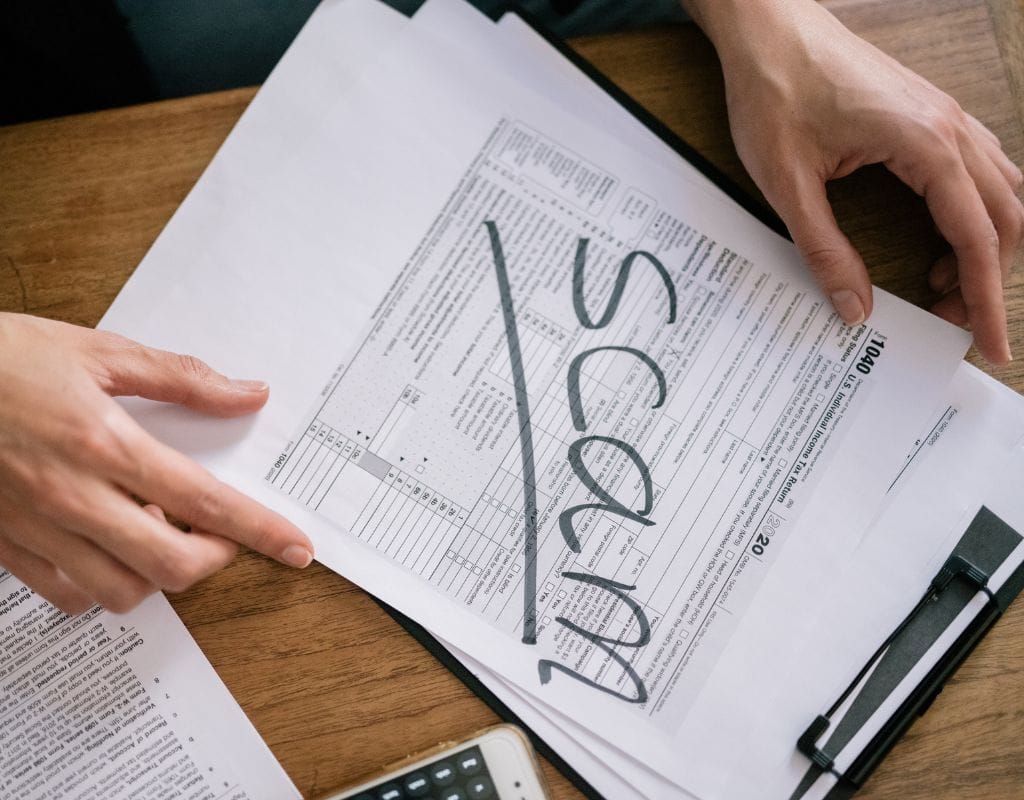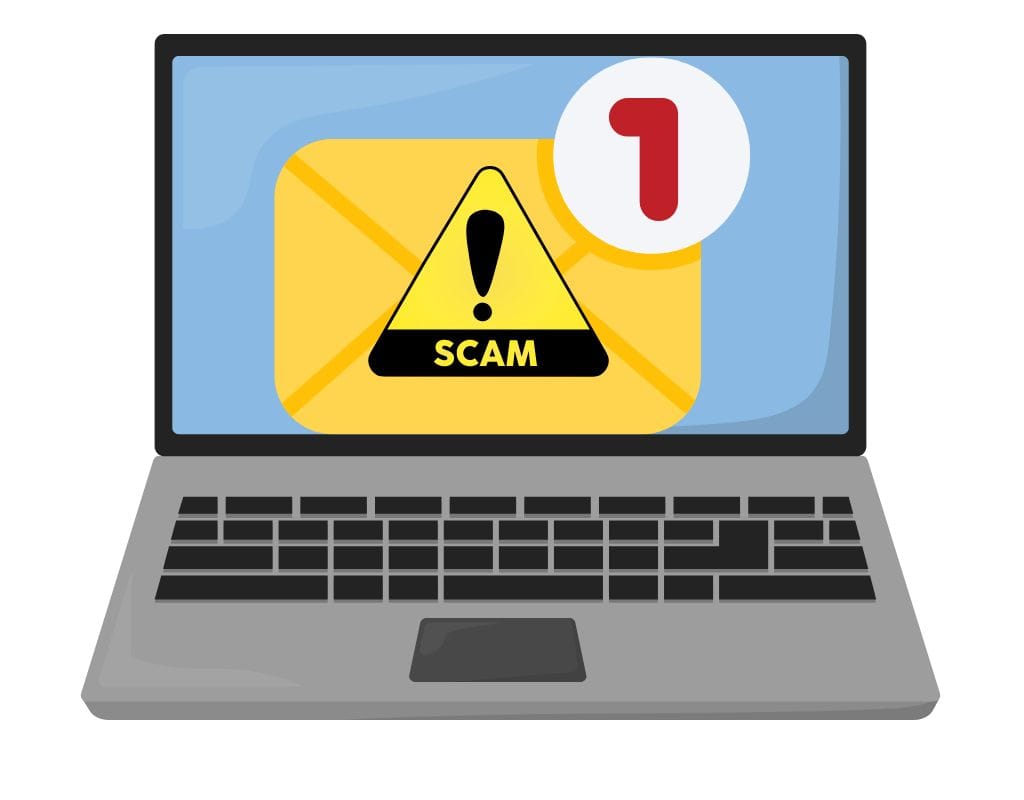Nowadays, it's almost impossible to go online without encountering scam emails that aim to scam or harm unsuspecting people. Finding and reporting a scam email is important to keep yourself and others from falling for these tricks. So, we will talk about how to spot a scam email, what to do when you get an email scam, and give several ways to report the scam. You can do a lot to protect your safety and fight online scams by being aware as well as taking action.
How to Spot a Scam Email?
It can be hard to distinguish between genuine and scam emails because they can be cleverly disguised. However, if you learn the usual signs of a scam email, you can spot these fraud attempts easily. Here are some of the most important signs you should look out for in a scam email to keep yourself from falling for it.
- Strange Sender Email Address: Scammers often use email addresses that look like real ones, but they spell or format them slightly differently.
- Poor Grammar and Spelling: Email scams usually come from people who don't speak English as their first language or from automatic systems, so grammar and spelling mistakes are easy to spot.
- Urgency and Threats: Scammers use fear and a sense of urgency to make people worry and pressure them to give up personal information or pay money.
- Random Personal Data Requests: Legitimate businesses usually don't ask for private information through email.
- Unrealistic Promises or Offers: Scammers often use offers that seem too good to be true to get people to fall for them.
- Suspicious Attachments or Links: Files or links from unknown sources could contain viruses, malware, or phishing attempts.
- Generic Greetings: Scam emails from businesses often use generic greetings instead of personalized greetings.
Different Types of Email Scams
- Phishing Scams: Phishing emails pretend to be reliable in order to get people to give out private information like login information or credit card numbers.
- Advance Fee Fraud: People who pull these scams ask for a fee or payment upfront in return for a reward, lottery prize, or money-making chance that doesn't exist.
- Nigerian Scams: People are tricked into sending money to Nigerian scammers, who also call them "419 scams," by promises of a big reward.
- Fraudulent Invoice Scams: Scammers send fake invoices that look like real bills to trick people or businesses into paying them without permission.
- Romance Scams: Scammers use online dating sites to target people and build emotional ties with them in order to take their money.

What to Do If You Get a Scam Email?
It can be scary to receive a scam email, but it's important to stay calm and take action to protect your personal information and prevent further damage. So, we will discuss what you should do when you receive a scam email.
Do Not Respond or Click on Any Links
- Don't answer scam emails if you don't want to prove your email address.
- To keep your computer safe and stop identity theft, don't click on links in scam emails that look sketchy.
Keep Your Private Data Safe
- Do not give out personal or bank details.
- If you think something is wrong, double-check the account information.
- To get in touch with your banks, use their official channels.
- If personal information is given, change passwords right away.
- Be sure that each account has its unique password.
Report to Your Email Provider
- Use the feature that comes with your email provider to report scam emails.
- Spam filters are improving, and users are safer when they report it.
- To keep scam emails from getting through, you should move them to the trash folder.
- You might want to block the sender's email to stop scams from happening again.

Several Ways You Can Do to Report a Scam Email
Reporting a scam email to the right people is important to fighting online fraud and keeping other people from falling for similar scams. So, here are several ways to report a scam email to the people trained to handle these kinds of cases.
Reporting to Local Law Enforcement
- Contact the police or another law enforcement body in your area.
- Give all the important information, like the email, files, and conversations you had with the scammer.
- If told to, file a formal police report.
- For the investigation, get supporting proof like screenshots, email headers, etc.
Giving information to the National Fraud and Cyber Crime Reporting Center
- Find the right organizations to handle cases of hacking and fraud.
- Please provide specifics about the scam email, such as email content, sender details, and any attachments or links within the email.
- Follow specific ways to report things or fill out online forms to make sure they are processed quickly.
Making a Report to the Internet Crime Complaint Center (IC3)
- The Federal Bureau of Investigation (FBI) and the National White Collar Crime Center (NW3C) work together to run the Internet Crime Complaint Center (IC3).
- When you file a report with IC3, include many details about the scam email, such as email content, sender information, and any relevant attachments or links.
- When you send your report to IC3, include any proof you have, like screenshots or email headers.

How to Avoid Scam Emails?
Stopping scam emails is an important part of keeping your online activity safe and avoiding losing money or scammers stealing your identity. So, we'll talk about some things you can do to keep yourself from falling for scam emails.
Set an Email Filters
- Most email companies have built-in filters that can find and delete emails that look sketchy.
- You can set up filters in your email provider to sort incoming emails based on certain factors.
- Make a whitelist of senders or domains that you trust so that valid emails don't accidentally get marked as spam.
Update Security Software Regularly
- Install protection and anti-malware apps that you can trust.
- Update these apps often to find and get rid of any possible threats.
Never Share Personal Information Over Email
- Be careful when emails ask for private, sensitive information.
- Make sure that requests are real by contacting the organization personally.
- When you need to share private information, do so through secure means, such as encrypted websites or secure messaging apps.
Be Wary and Vigilant
- Be wary of emails that look too good to be true.
- Trust your gut and consider whether a scam offer is authentic.
- Check email sources for spelling mistakes, changes, or domain names that look unusual.
- Keep up with the newest scam methods and how they work.
By taking these precautions, you can significantly lower your chances of falling for scam emails. But you should stay alert and keep changing how you keep your information safe because scammers are getting better at what they do. The best way to keep your internet safety and personal information secure is to avoid problems in the first place.

